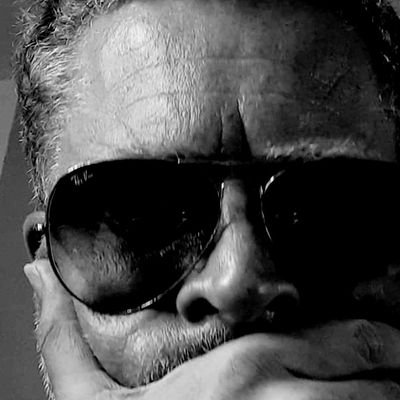Tired of visa runs? Vietnam might have what you’re waiting for...
Vietnam proposes groundbreaking five-year visa exemptions for global talent, influencers, and skilled professionals. Could this transform Southeast Asia’s immigration landscape?
Vietnam is making headlines with a proposal that could change how skilled professionals, influencers, and global talent experience Southeast Asia. The Ministry of Public Security has submitted a draft decree to the Ministry of Justice that would grant special five-year visa exemptions to select foreign nationals.
Their aim? Vietnam wants to transform from a backpacker pit-stop into a serious contender for global talent. The package includes 90-day stays per entry, renewable cards, and digital ID accounts.
Who Qualifies?
The eligibility criteria read like a VIP list for the economically productive. Vietnam’s proposal targets:
- Chief executive officers and experts
- Scientists and university professors
- Researchers and engineers
- High-quality IT personnel
- Investors and leaders of multinational corporations
- Content creators with at least one million followers
Your favourite travel influencer with a million Instagram followers could qualify for the same five-year exemption as a Nobel Prize-winning scientist.
For investors and corporate executives, eligibility applies to those affiliated with the world’s top 100 companies by market capitalisation.
Experts and researchers in STEM, economics, management or business administration must hold a doctoral degree and be nationals of OECD countries.
Athletes who have won Olympic medals, Paralympic medals, or received top FIFA/AFC honours are also eligible.

Vietnam’s visa targets conscious professionals seeking authentic cultural experiences
The Competition Reality
Vietnam received over 10.6 million foreign visitors in the first half of 2025, a 20.7% increase year-on-year. Yet the country knows it’s playing catch-up.
In comparison, Thailand received over 36 million visitors this year and offers a 10-year Long-Term Resident visa. Vietnam currently exempts visas for citizens of 30 countries. Thailand has expanded visa exemption to 93 countries, while Malaysia grants visa-free entry to 158 countries.
Vietnam isn’t just trying to level the playing field. It’s trying to leapfrog the competition.

Vietnam balances heritage preservation with modern development ALT Text: Vietnamese traditional village showing sustainable tourism development
Beyond Tourism: The Real Strategy
This isn’t about tourism. It’s about talent acquisition. Vietnam had just 5,500 chip design engineers whereas the industry needed closer to 10,000 over the last year.
The semiconductor shortage isn’t just about chips. It’s about the people who design them.
Under the draft decree, eligible individuals get a visa exemption card valid for up to five years. Each entry allows a 90-day stay with multiple re-entries.
That’s double the current maximum stay. For digital nomads and remote workers, this could be transformational.
The Influencer Element
Social media influencers with over one million followers have raised eyebrows. Critics call it superficial. Supporters argue that modern influence drives legitimate economic value.
A travel influencer with genuine reach can drive more tourism revenue than a small hotel chain. In an attention economy, followers translate to influence, and influence translates to economic value.
Influencers must gain official approval before applying, suggesting Vietnam isn’t handing out five-year passes to anyone with a smartphone and a Tiktok account.
Regional Arms Race
This proposed visa change is part of broader economic competition. Vietnam aspires to reach high-income status by 2045, and the golden visa programme supports that goal.
Malaysia, Thailand, Indonesia, Greece, Portugal, Spain, and Malta have launched similar schemes. It’s a global competition for human capital.
By the end of 2025, 1,188 kilometres of expressways are expected to be completed, extending the national network to 3,000 kilometres.
Vietnam’s e-visa system has been expanded to cover citizens from all countries and territories, with applications processed entirely online.

Vietnam’s luxury eco-accommodation appeals to conscious travellers
What This Means for Conscious Travellers
For qualifying professionals seeking sustainable, long-term travel options, this could be a game changer. The freedom to base yourself in Vietnam for up to five years, with 90-day stays and visa-free re-entry, opens possibilities for meaningful cultural immersion that don’t exist with traditional tourist visas.
Vietnam offers a compelling alternative to overtourism hotspots. While destinations like Bali and Thailand struggle with environmental pressures from short-term tourism, Vietnam’s longer-stay approach could support more sustainable travel patterns.
The country’s growing focus on eco-conscious development, combined with rich cultural heritage and affordable luxury accommodation, makes it attractive for travellers seeking authentic experiences beyond the typical backpacker trail.
There’s a catch of course. This remains a draft decree under review. Vietnamese bureaucracy moves at its own pace, and promising proposals don’t always translate to reality.
The Sceptical View
Grand visa announcements often get watered down during application or quietly shelved when political winds change.
Vietnam’s current immigration system can be bureaucratic and opaque. Extending that to a five-year exemption programme creates opportunities for corruption and arbitrary enforcement.
Offering preferential treatment to OECD nationals while maintaining restrictions on others could create diplomatic complications. The emphasis on “positive public influence” suggests significant government discretion in approvals.
The Bottom Line
Vietnam is serious about competing in the global talent market. The country aims to attract 23 million international visitors by 2025, exceeding pre-pandemic figures.
The country positions itself for a post-COVID world where remote work and location independence are normal. By offering genuine long-term options to skilled professionals, Vietnam could capture significant global mobility market share.
Whether this becomes an actual policy remains to be seen. As said, Vietnamese politics can be opaque, and economic promises don’t always survive political reality.
For qualifying individuals, it’s worth watching closely. If applied as proposed, this could represent one of the most liberal long-stay visa policies in Southeast Asia.
Vietnam is done being overlooked in regional competition for global talent. The question is whether they can deliver.
Follow Asia Unmasked on Facebook or X/Twitter for latest developments and up-to-the-minute posts on visa developments for Vietnam and other countries across the region.
#VietnamVisa #DigitalNomadVisa #SoutheastAsiaTravel #VietnamImmigration #GlobalTalentVisa #VietnamGoldenVisa


